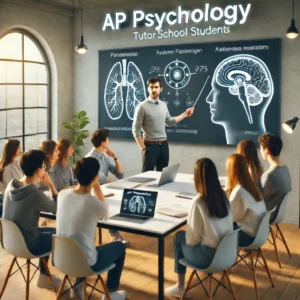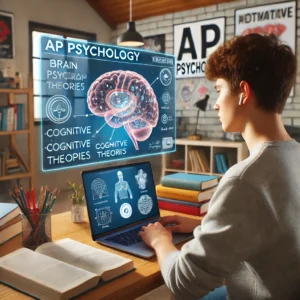AP Psychology Tutor from India
Learning psychology can feel challenging at first, but with the right AP Psychology tutor, it becomes simple and even enjoyable. From understanding how the mind works to exploring behavior, emotions, and social interactions, psychology is a fascinating subject that helps you see the world in a new way.
At Noble Learners, we know that every student learns differently. Our tutors break down complex topics into easy-to-understand lessons, making the subject more approachable. We don’t just prepare you for the AP Psychology exam—we also help you apply what you learn to real-life situations, making it meaningful and useful.
To support your learning, we provide free resources through our app, including practice tests and study materials valued at over $1,000. Combined with personalized worksheets from your AP Psychology tutor, these tools give you everything you need to succeed.
With Noble Learners, psychology can become one of your strengths. Our tutors are here to guide you at every step and help you reach your academic goals.

AP Psychology Syllabus
At Noble Learners, our AP Psychology Tutor is dedicated to providing a comprehensive understanding of the foundational principles of psychology. This syllabus outlines the topics and concepts that students will master under the guidance of an expert tutor. From theoretical frameworks to practical applications, this course is designed to prepare students not only for the AP Psychology exam but also for a deeper appreciation of human behavior and mental processes.
1. Science Practices
- Research methods and designs
- Data analysis and interpretation
- Application of psychological concepts in real-world scenarios
2. History and Approaches
- Development of psychology as a science
- Major theoretical perspectives (e.g., Behavioral, Humanistic, Psychodynamic, Cognitive)
3. Biological Bases of Behavior
- Nervous system and brain structure
- Neurotransmitters and their impact on behavior
- Genetics and behavior
- States of consciousness (sleep, dreams, drugs)
4. Sensation and Perception
- Sensory processes (e.g., vision, hearing, touch)
- Perception and perceptual interpretations
- Influence of culture and individual differences on perception
5. Cognition
- Memory systems (encoding, storage, retrieval)
- Thinking and problem-solving strategies
- Intelligence theories and testing
6. Developmental Psychology
- Physical, cognitive, and social development through life stages
- Influence of nature and nurture on development
7. Learning
- Classical and operant conditioning
- Observational learning and cognitive learning theories
8. Social Psychology
- Group behavior and dynamics
- Social influence, prejudice, and aggression
- Theories of personality and emotion
9. Mental and Physical Health
- Psychological disorders (categories, symptoms, and treatments)
- Positive psychology and stress management
10. Treatment of Psychological Disorders
- Types of therapies (e.g., cognitive-behavioral, humanistic)
- Ethical considerations in therapy

Our Features
-
Expert Tutors From India
At Noble Learners, we pride ourselves on having a team of expert tutors who are not only well-qualified but also possess extensive teaching experience. Our tutors are well-versed in the Canadian curriculum, offering tailored guidance to students across Canada. This ensures that students get the best online tutoring experience from highly skilled professionals in India.
-
One-One-Tutoring
We understand that every student has unique learning needs. That’s why Noble Learners focuses on personalized, one-on-one tutoring. Our tutors act as mentors, offering individualized attention to help students achieve their academic goals. Many students have successfully improved their grades and excelled in exams with our personalized approach.
-
Flexible Timings
At Noble Learners, flexibility is key. We offer tutoring sessions at times that are convenient for the student, making it easier to balance school, extracurriculars, and other commitments. No matter your schedule, our tutors are available to accommodate your needs.
-
Live Sessions Via Zoom
All of our sessions are live, one-on-one classes conducted via Zoom. Unlike other platforms that offer pre-recorded courses, we believe in real-time learning. This ensures that students can get their doubts clarified instantly, improving their understanding. Our tutors are dedicated to addressing every student’s questions and providing comprehensive explanations.
-
Free Demo (30-Minutes)
Choosing the right tutor is crucial to academic success. That’s why we offer a free 30-minute demo class, giving students the opportunity to evaluate the tutor before making a decision. This trial session ensures that the student feels comfortable with the teaching style and content. After the first demo, you can even request a second free demo with another tutor if needed.
-
More than 50 teachers to choose from
With over 50 experienced tutors to choose from, Noble Learners offers a variety of options to ensure the perfect match for each student’s needs. If you're not satisfied with your first demo, you can explore a second demo with another expert. Please note that only two demo classes are free, and subsequent demo sessions may incur a charge.
-
Tutors from IITs, Medical Colleges, IIITs & Central University
Our tutors are exceptional individuals from prestigious institutions like IITs, Medical Colleges, IIITs, and Central Universities. They are accomplished graduates or final-year students who have cracked some of the toughest exams in their fields. With their rich experience in tutoring and deep subject knowledge, they bring passion, expertise, and proven success to help your child excel academically. Whether it’s simplifying complex concepts or inspiring confidence, our tutors know how to make learning engaging and effective. Your child learns from the best to become their best.
AP Psychology Exam Questions
1. Which part of the brain is primarily responsible for regulating hunger and thirst?
a) Hippocampus
b) Hypothalamus
c) Amygdala
d) Medulla
Correct Answer: b) Hypothalamus
2. What term describes the process by which a conditioned response is weakened when the conditioned stimulus is repeatedly presented without the unconditioned stimulus?
a) Spontaneous recovery
b) Extinction
c) Generalization
d) Discrimination
Correct Answer: b) Extinction
3. According to Piaget, at what stage do children typically develop the ability to understand conservation tasks?
a) Sensorimotor
b) Preoperational
c) Concrete operational
d) Formal operational
Correct Answer: c) Concrete operational
4. What neurotransmitter is most closely associated with mood regulation and is implicated in depression?
a) Dopamine
b) Serotonin
c) Acetylcholine
d) Glutamate
Correct Answer: b) Serotonin
5. In classical conditioning, what is the term for the learned response to a previously neutral stimulus?
a) Unconditioned response
b) Conditioned response
c) Unconditioned stimulus
d) Conditioned stimulus
Correct Answer: b) Conditioned response
6. Which of the following best describes a variable ratio schedule of reinforcement?
a) Reinforcement occurs after a set number of responses.
b) Reinforcement occurs after a varying number of responses.
c) Reinforcement occurs after a set amount of time.
d) Reinforcement occurs after a varying amount of time.
Correct Answer: b) Reinforcement occurs after a varying number of responses.
7. What is the term for the ability to focus on one stimulus while filtering out other stimuli, as demonstrated by the "cocktail party effect"?
a) Divided attention
b) Selective attention
c) Sustained attention
d) Alternating attention
Correct Answer: b) Selective attention
8. What type of memory involves the recollection of facts and general knowledge?
a) Episodic memory
b) Semantic memory
c) Procedural memory
d) Implicit memory
Correct Answer: b) Semantic memory
9. Which psychologist is most associated with the hierarchy of needs theory?
a) Sigmund Freud
b) Abraham Maslow
c) Carl Rogers
d) Erik Erikson
Correct Answer: b) Abraham Maslow
10. What term refers to the brain's ability to change and adapt as a result of experience?
a) Neurogenesis
b) Plasticity
c) Pruning
d) Myelination
Correct Answer: b) Plasticity
11. What stage of sleep is characterized by rapid eye movement and vivid dreaming?
a) NREM Stage 1
b) NREM Stage 3
c) REM sleep
d) NREM Stage 2
Correct Answer: c) REM sleep
12. In which psychological perspective are observable behaviors and their relationship to environmental stimuli emphasized?
a) Psychodynamic
b) Behavioral
c) Cognitive
d) Humanistic
Correct Answer: b) Behavioral
13. What is the independent variable in an experiment designed to test the effects of sleep deprivation on test performance?
a) Amount of sleep
b) Test performance
c) Time of testing
d) Number of participants
Correct Answer: a) Amount of sleep
14. Which defense mechanism involves redirecting aggressive impulses toward a safer target?
a) Regression
b) Sublimation
c) Displacement
d) Denial
Correct Answer: c) Displacement
15. What type of correlation is represented by a graph where higher values of one variable are associated with higher values of another variable?
a) Positive correlation
b) Negative correlation
c) Zero correlation
d) Spurious correlation
Correct Answer: a) Positive correlation
16. Which part of the neuron is responsible for receiving information from other neurons?
a) Axon
b) Dendrite
c) Soma
d) Synapse
Correct Answer: b) Dendrite
17. What term is used to describe the smallest difference in stimulation that a person can detect 50% of the time?
a) Absolute threshold
b) Difference threshold
c) Weber's law
d) Sensory adaptation
Correct Answer: b) Difference threshold
18. Which schedule of reinforcement results in the highest, most consistent rate of responding?
a) Fixed interval
b) Variable interval
c) Fixed ratio
d) Variable ratio
Correct Answer: d) Variable ratio
19. According to Freud, which part of the personality operates on the "pleasure principle"?
a) Id
b) Ego
c) Superego
d) Conscious
Correct Answer: a) Id
20. In Maslow's hierarchy of needs, which level must be satisfied before individuals can pursue self-actualization?
a) Esteem needs
b) Love and belonging
c) Safety and security
d) Physiological needs
Correct Answer: d) Physiological needs

